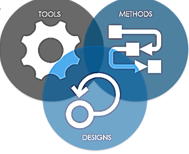Testing and Validation
- Promotes rigorous testing and validation of AI systems. It includes developing comprehensive test plans, conducting different types of tests and evaluating the system's performance against defined metrics.
- Ensures that the AI system functions as intended, produces reliable results, and meets user requirements.
Accuracy and Precision
Work with the Technical team to check AI system performance compared to the ground truth or expected outcomes.
-
Robustness
Robustness refers to an AI system's ability to perform consistently and accurately across different conditions, inputs, or environments. Robustness testing involves evaluating how the system handles noise, adversarial attacks, or input variations that may deviate from the training data. -
Bias and Fairness:
AI systems should be assessed for potential biases and fairness issues. Bias can arise due to skewed training data or algorithmic design, leading to unfair or discriminatory outcomes. Metrics like disparate impact, equal opportunity, or statistical parity are used to measure and mitigate biases.
Data Quality
Assessing the quality of training data is crucial for AI systems. It involves evaluating data integrity, completeness, accuracy, and potential biases. Data preprocessing techniques like data cleaning, normalization, and augmentation can improve the quality of training data.
Security
Security measures are essential to protect AI systems from unauthorized access, manipulation, or malicious attacks. Security considerations include secure data storage, access controls, encryption, and monitoring of system vulnerabilities.

